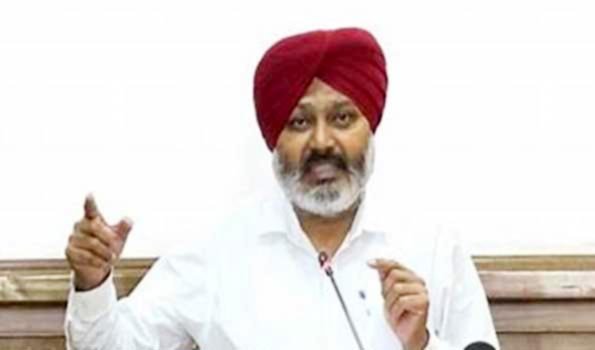- This time also, Congress and BJP engaged in distribution of tickets on the basis of caste equations
Milind Muzumdar, Indore
It is said about the Hindi speaking regions of the country that casteism prevails there. Examples of Bihar, Uttar Pradesh and Rajasthan are cited for this. In Madhya Pradesh too, politics takes place on the basis of casteism in Vindhya, Baghelkhand, Bundelkhand and Gwalior Chambal region, especially in those areas which are adjacent to the border of Uttar Pradesh. But this does not happen in Malwa and Nimad region. Casteism is not so dominant here. If we talk about Indore district, casteism is not visible here at all. Despite this, Congress and BJP have always distributed tickets here on the basis of social equations or social engineering.
In the electoral history of Indore, Congress is the party which has given opportunities to Brahmins the maximum number of times. Till the 1990s, maximum number of Brahmins were elected as MLAs from Indore district on Congress ticket. On the other hand, BJP gave more opportunities to the OBC class. In the 2023 assembly elections, BJP and Congress are preparing to distribute tickets on the basis of social structure. Regular surveys are being conducted for this. In 2018, out of 9 assembly seats in Indore district, Congress has won Sanjay Shukla from area number 1, Mohan Singh Sengar from area number 2, Ashwin Joshi from area number 3, Surjit Singh Chadha from area number 4, Satyanarayan Patel from area number 5, Jeetu Patwari from Rau Assembly seat, Premchand Guddu from Sanwer, Vishal Patel from Depalpur and Antar Singh Darbar from Mhow were nominated. These include Sanjay Shukla and Ashwin Joshi Brahmin, Mohan Singh Sengar Rajput, Surjit Singh Chadha Sikh minority from area number 4, Satyanarayan Patel OBC Kalota Rajput from area number 5, Jeetu Patwari from Rau, Chandravanshi Khati Samaj OBC, Premchand Guddu from Saver (in the by-election) Pasi Dalit, Vishal Patel from Depalpur Kalota Rajput OBC and Antar Singh Darbar from Mhow belong to Rajput community. On the other hand, the BJP has fielded Sudarshan Gupta Vaish Savarn from area number 1, Ramesh Mendola Brahmin from area number 2, Akash Vijayvargiya Vaish Savarn from area number 3, Malini Gaur Rajput Savarn from area number 4, Mahendra Hardia OBC Murai Samaj from constituency number 5, Madhu Verma Murai Samaj OBC from Rau, Tulsi Silavat from Saver (in the by-election) Khatik Samaj, Manoj Patel OBC Dhakad Samaj from Depalpur, Usha Thakur Rajput Savarn Samaj from Mhow. Both these parties will distribute tickets on the same pattern in 2023 as well.
The credit goes to the Congress that it made maximum number of Brahmins as MLAs. Among them are leaders like Vishnu Venkatesh Dravid, Gangaram Tiwari, Chandraprabhash Shekhar (his original surname is Pandey), Mahesh Joshi, Chandrasekhar Vyas, Yagyadutt Sharma, Narayan Prasad Shukla, Ashok Shukla, Sanjay Shukla, Ashwini Joshi. Many such Brahmin candidates fought on behalf of the party who could not win the election. On the other hand BJP gave more importance to OBC leaders. Although the Bharatiya Janata Party was established in 1980, but before that it contested the 1977 elections in the name of Janata Party and before that it used to contest in the name of Bharatiya Jana Sangh. Assembly tickets were given to Bherulal Patidar, Nirbhay Singh Patel, Manoj Patel, Mahendra Hardia, Madhu Verma, Jitu Jirati from the party. Apart from these, leaders like Narayan Singh Kesari and Kavita Patidar were also sent to the Rajya Sabha. The politics of Indore district has been divided between BJP and Congress for the last three decades. There is no existence of third front here after 1990, but socialists and leftists were in dominant position in Indore till 80s. Comrade Homi Daji became MLA twice and MP once from the Left side. Homi Daji used to come from the Parsi community, whose community’s votes have been in very small numbers here. Apart from this, leaders from socialist ideology like Ratan Patodi, Kalyan Jain, Arif Beg got success in going to the assembly.
Myth of Depalpur seat
There is always a discussion in Depalpur assembly constituency that only Kalota Rajput leader can win the election from here as 60,000 Kalota Rajput voters live in this constituency. If you look at the history of this assembly, along with the Kalota candidate, the leaders of non-Kalota community also win here equally. Bapu Singh Mandloi, Rameshwar Patel, Satyanarayan Patel, Jagdish Patel and present MLA Vishal Patel come from Kalota Samaj. While from here Nirbhay Singh Patel 4 times, Manoj Patel twice, Ramchandra Agarwal, Bhagwat Sabu and Ratan Pataudi have become MLAs as candidates who were not from Kalota Samaj. In this way, seven times Kalota and nine times non-Kalota candidates won from Depalpur.
MLAs from the same community were elected in Sanver
Sanver assembly constituency is the only Dalit safe seat in Indore district. There are about 30,000 voters of Dalit Balai Samaj in Sanver, but most of the times Dalit leaders of Khatik Samaj have become MLAs from here. Whereas the voters of Khatik community are negligible. From here Tulsi Silavat was elected MLA five times, Prakash Sonkar four times, Rajesh Sonkar and Sajjan Singh Vishnar once who come from Khatik community.
This is the social equation of different assembly seats
- Indore assembly constituency number one is dominated by Brahmin, Muslim and Yadav voters. Brahmin Sanjay Shukla is the MLA from here.
- Indore Assembly Constituency Number 2 is considered to beYadav, Bairwa, Marathi Kunbi, Koiri, Kushwaha society dominant. BJP’s Ramesh Mendola is the MLA from here.
- In Assembly Constituency No. 3, a large number of people from Muslim, Marathi Samaj, Jain, Agarwal, Yadav and Khatik Samaj live. In Marathi society, people from both Marathi Brahmin and Marathi Dhangar communities live here. Marathi Dhangar Samaj is considered in OBC category. BJP’s Akash Vijayvargiya is the MLA from here.
- Assembly Constituency Number 4 has majority of Muslim, Brahmin, Jain, Sikh and OBC voters. BJP’s Malini Gaur is the MLA from here.
- Area number 5 has the maximum number of Muslim voters, apart from them there are voters from Murai, Kushwaha, Lodhi, Vishwakarma, Patidar, Dhakad communities. BJP’s Mahendra Hardia is the MLA from here.
- Eight wards of Mhow assembly are urban while a large part comes in rural. Voters of Khati, Patidar, Dhakad, Rajput community are more in rural areas, while on the other hand Marathi, Jain and OBC communities dominate urban seats.











